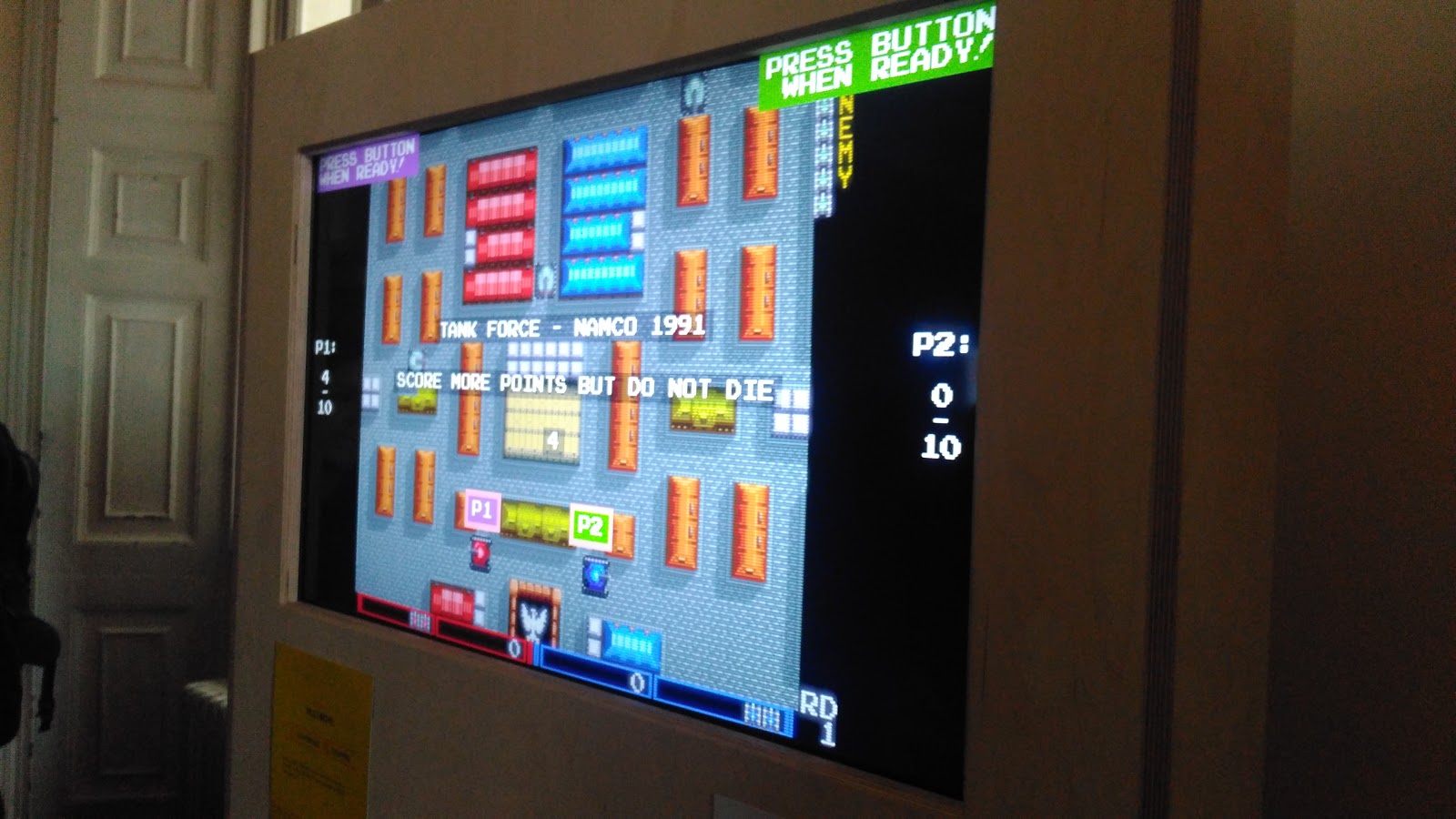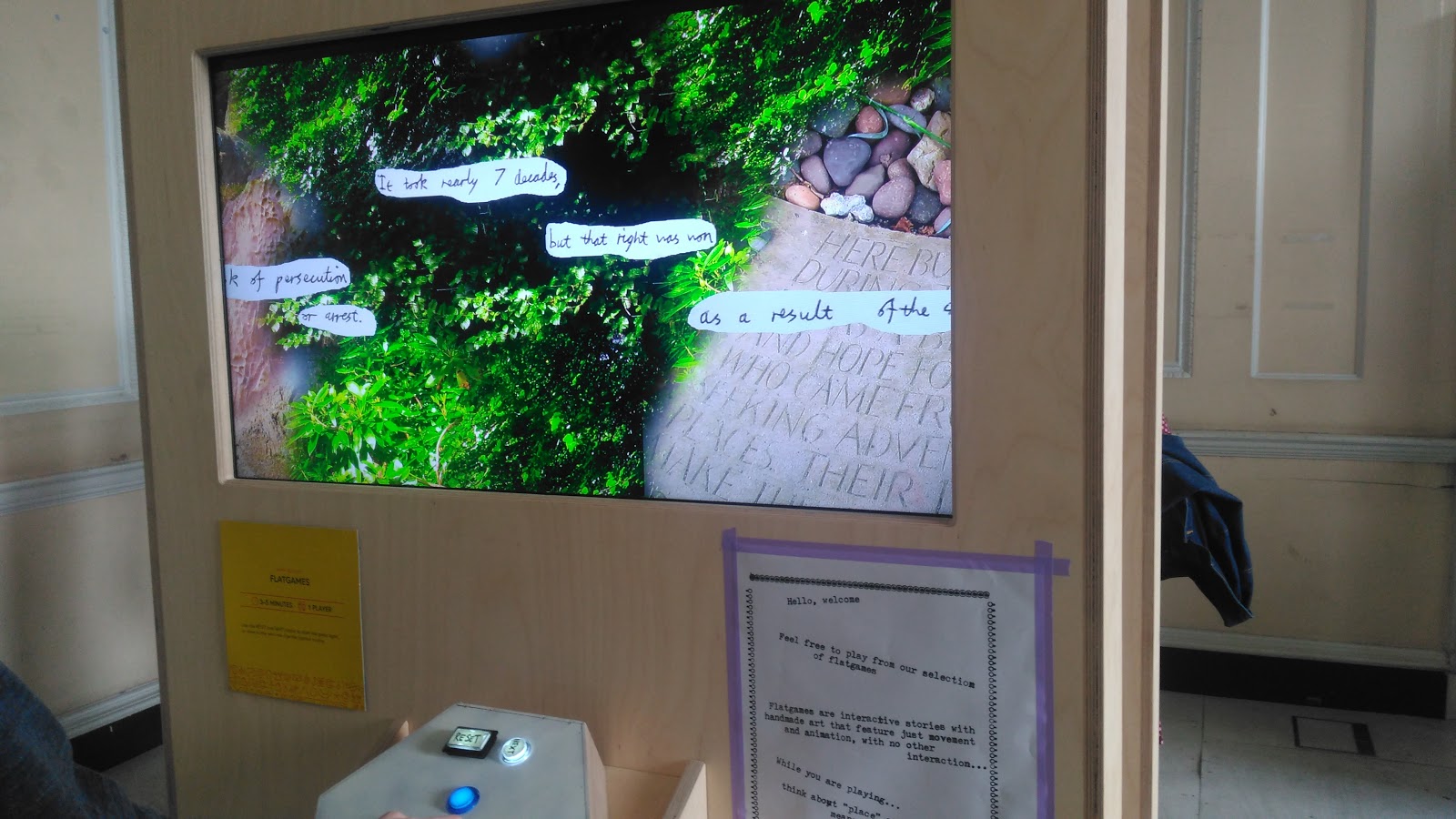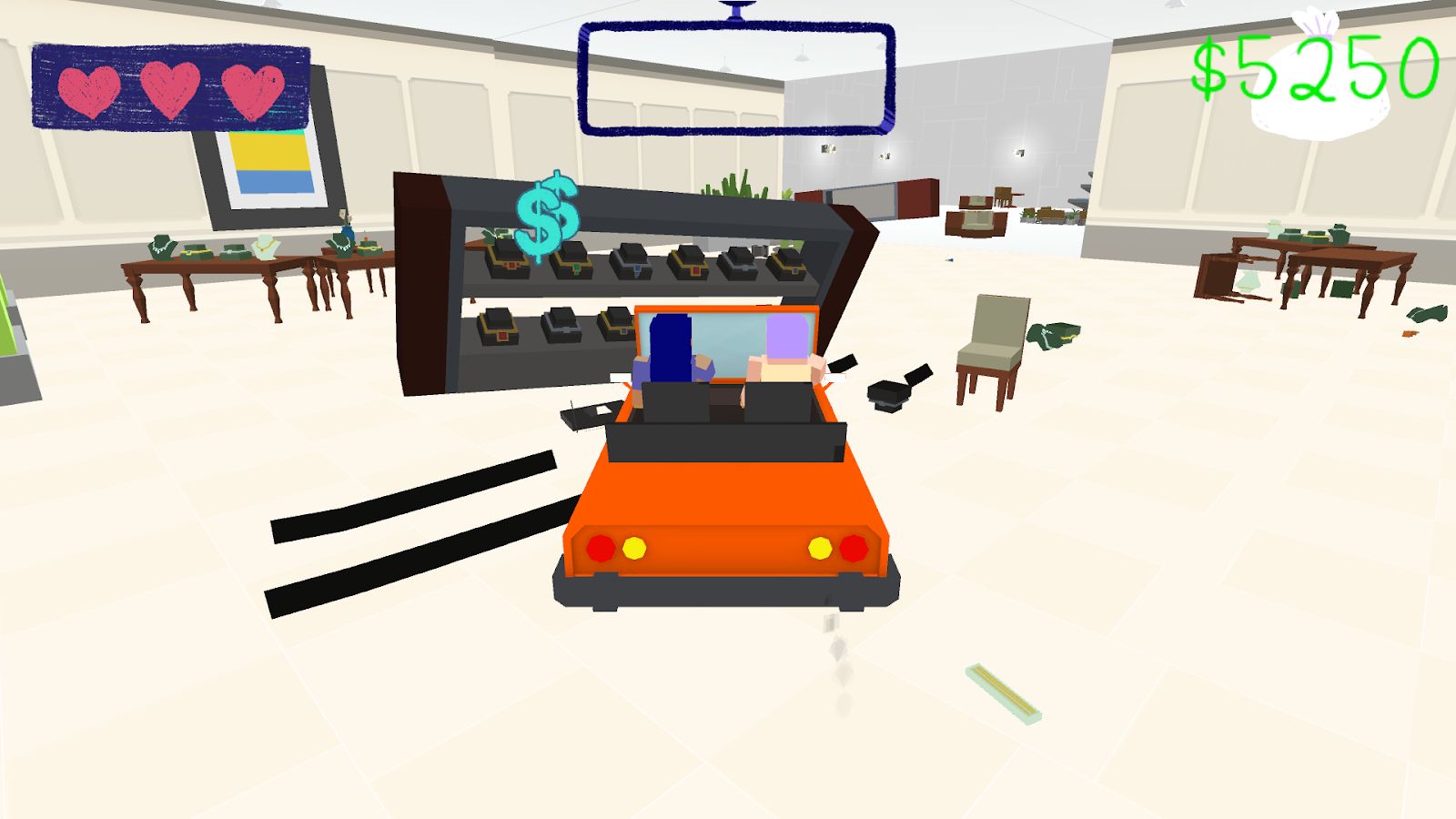'Thelma & Louise vs. the mall' and more experimental games from the Now Play This festival
This year the London game design festival's themes were 'place', 'pattern' and 'game-making'.
Now Play This is a festival of game design that took place in London last weekend, letting attendees get hands on with a collection of vibrant, experimental games, both as players and makers. Many of these games fit the festival's 2018 theme of 'place', making the event feel like a whistle-stop tour of dozens of locations. Some were the spaces of everyday life, like 10 Mississippi by Karina Popp, a game made of 10-second snippets from the daily routine of a woman living in New York. Its mundane activities like brushing teeth or drinking coffee or catching a train all combine a sense of familiarity with a feeling of unease, like you're intruding on the intimacy of a stranger.
Other games brought players into a much more fantastical space. Panoramical by Fernando Ramallo and David Kanaga is a game in which the player morphs their surroundings, changing the abstract and colorful landscape, weather patterns, and more. Each feature is also linked to some aspect of the music, so any given level can be a dramatic, jangling storm or a quiet, pastel rainfall, or much else besides. Rather than exploring an area, as in many videogames, the idea is to explore the possibility of what you can transform that area into.
Panoramical is available on both itch.io and Steam and more than worth playing at home, but at the event it was staged in a darkened room full of bean bags, the game projected onto a large wall and played with a custom controller comprising 18 dials. The player became a part of the experience, creating a sense of large-scale changes at your fingertips and instilling a performative angle as players were observed by friends and strangers.
Many of the other games also drew an audience. In particular, Bennett Foddy and AP Thomson's Multibowl consistently attracted one of the largest crowds. In Multibowl players go head to head in challenges remixed from emulations of over 300 older games, like winning a point in 1997's Capcom Sports Club or being the first to catch a fly in 1982's Frogs and Flies. Every minigame has a 30-second time limit and varying controls and objectives, creating a fast-paced, engaging experience that works as a spectator sport.

Foddy describes Multibowl as a "collage" since it's made from fragments of pre-existing software. Elsewhere in the event, visitors were invited to contribute to flatgames, which are also collage-like: explorable, two-dimensional spaces made from hand-drawn images. Flatgames (the name was coined in 2016 by game designer Llaura McGee) are intended to be accessible to create as well as play, and focus on storytelling and atmosphere.
Several of the games on show were created for the 2017 Flatjam, which had the same theme as Now Play This—fitting for a genre of game that encourages movement, discovery, and often non-linear narratives. The games created from the art and words of visitors were also made available to explore the following day, bringing together the disparate thoughts and experiences of a variety of strangers on topics like "memorable skies" and "dens we built as children."

Attendees also found places of personal importance in Wikipedia: The Text Adventure. Players travel the world via Wikipedia pages, each location accompanied by a pixelated version of the actual page's top image. It's possible to go just about anywhere, and the game will then offer up nearby locations to encourage a meandering exploration. In practice this often leads to an unfortunate focus on surveying the site of disasters, but if you'd rather steer clear of the morbid it’s easy enough to skirt around that in favor of monuments, museums, and metropolises.
Keep up to date with the most important stories and the best deals, as picked by the PC Gamer team.
Two other games, Justin Smith's Freeways and Heather Robertson's I-35, also simulated travelling while tackling the issues of transportation and urban congestion. I-35 sees four cars in bumper-to-bumper traffic, with players able to press corresponding buttons to inch forwards when a small gap presents itself. Above each car, the thoughts of the drivers appear: frustration, idle musings, and the moments of joy when a good song comes on the radio.
Freeways, on the other hand, asked players to try to solve traffic problems themselves, creating spidery networks and attempting to avoid total congestion. It's a lot harder than it looks—perhaps provoking sympathy for engineers that the drivers in I-35 would have trouble feeling while stuck in their cars.

Another driving game, Lost Wage Rampage by Jane Friedhoff casts players as a pair of women who are rightfully angry upon finding out that they've been paid less than their male colleagues. Careening around the shops that once employed them to smash-and-grab what should have been theirs is a silly and cathartic way to blow off some very real steam. It's basically Thelma & Louise vs. the mall.
Finally, Dan Hett's The Loss Levels is a series of microgames, each taking 10 seconds or less, that explore the aftermath of the death of his brother Martyn in the 2017 Manchester terrorist attacks. Hett is currently in the process of making a series of works based upon his experiences, and The Loss Levels succinctly captures fragments of how the events unfolded, inviting players to take a few minutes to learn and reflect.
Organizers Holly Gramazio, George Buckenham, Sophie Sampson, and Jo Summers, plus all the developers who contributed to Now Play This, created something truly wonderful. From the serious to the surreal, the event collected an engaging group of games that showcased a wide variety of experiences for an equally varied audience. For those who could not attend, many of the games are now available to download as a collection at itch.io.

